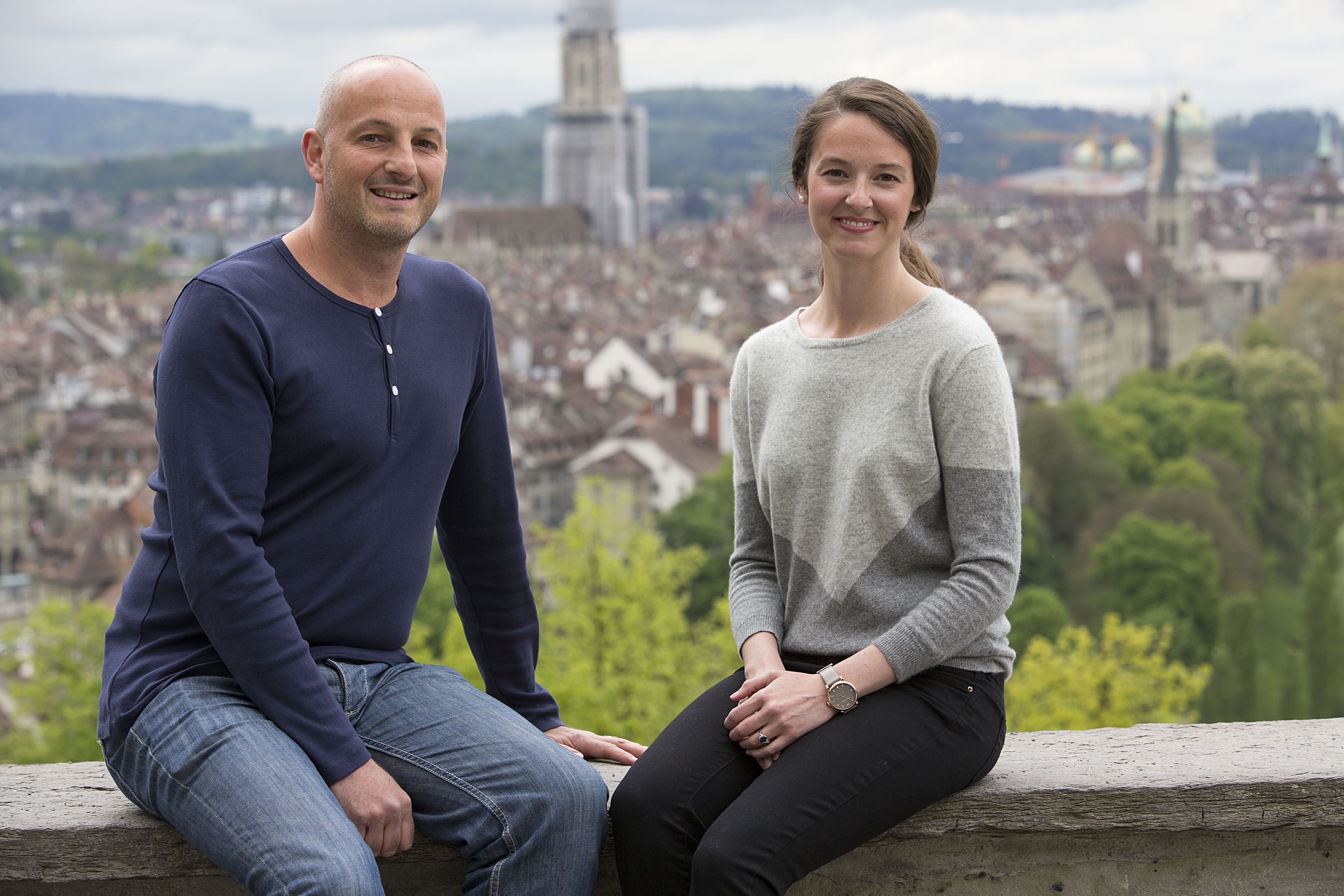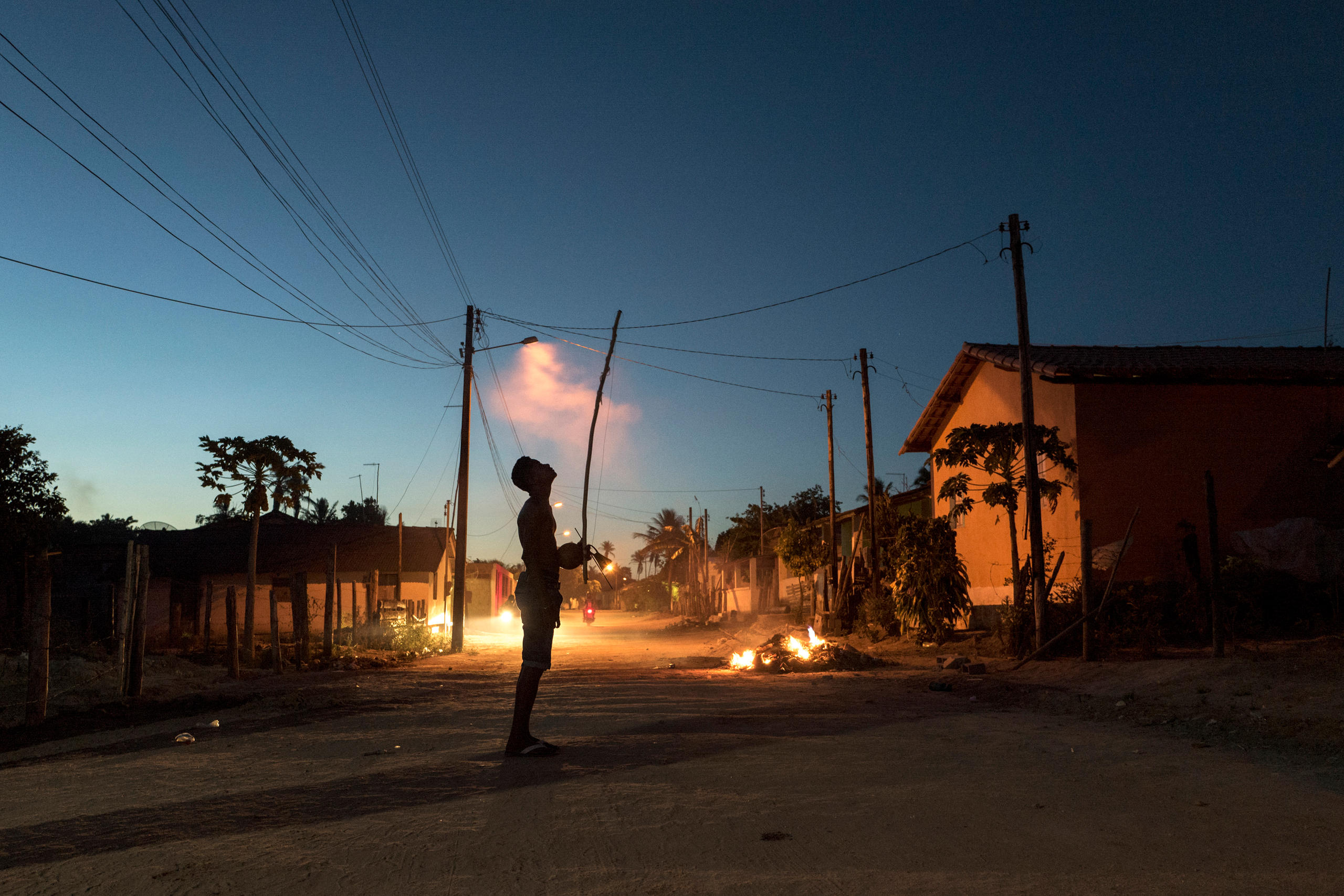‘Switzerland is a cemetery of sensations’
Brazilian author Clarice Lispector, who would have turned 100 today, spent three years in Switzerland after the war. Although it’s fair to say she hated her time in Bern, it marked a key point in her career.
“What saved me from the monotony of Bern was living in the Middle Ages, it was waiting for the snow to pass and for the red geraniums to be reflected once again in the water,” she later wrote.
“It was having a son born there, it was writing one of my least-liked books, The Besieged City, which, however, people come to like when they read it a second time; my gratitude to that book is enormous: the effort of writing it kept me busy, saved me from the appalling silence of Bern, and when I finished the last chapter I went to the hospital to give birth to the boy.”
Chaya Pinkhasovna Lispector was born to a Jewish family in Podolia in Western Ukraine. She moved to Brazil with her family when she was young. Her mother died when she was nine.
While in law school in Rio, she began publishing her journalism and short stories, gaining fame aged 23 with her first novel, Near to the Wild Heart.
She moved to Switzerland in April 1945, when her diplomat husband was posted to Bern. She wrote her third novel, The Besieged City, there.
They left Switzerland at the end of 1948 and lived in the United Kingdom and the US. However, bored with diplomatic life, Lispector left her husband and returned to Rio in 1959 with her two sons, where she would spend the rest of her life.
Clarice Lispector died from cancer on the eve of her 57th birthday. She is buried in the Jewish Cemetery of Caju in Rio de Janeiro.
Her novels include The Passion According to G.H. (1964), The Hour of the Star (1977) and A Breath of Life (1978).
She has only recently been discovered abroad, with collections of her works being published in English and German.
Chaya Pinkhasovna Lispector – described by Benjamin Moser as “the most important Jewish writer since Kafka” and by Colm Tóibín as “one of the hidden geniuses of the 20th century” – was born on December 10, 1920, to a Jewish family in Western Ukraine.
Her life as a nomad began early, moving with her family to Brazil as a child. She left Brazil in 1944, following her husband, a diplomat, to Naples. The Italian city had been devastated by war and Lispector worked in a Red Cross hospital.
However, when her husband was transferred to Bern, she said it felt like a leap into the dark.
She was 24 when she came to Switzerland, which became a sort of filter for her feelings and her anthropological observations. Her letters to her relatives, including to her sisters Tania and Elisa, both in Rio de Janeiro, served as an escape from what she considered a harsh and cold reality.
“In Naples you couldn’t breathe alone for a single minute. Here you really breathe alone,” she wrote to her sisters. Switzerland simply seemed lifeless. “Switzerland is solid – when you open your eyes in the morning you know it’s where you left it. It doesn’t have the character of a noble country like Italy or France, for example, where things are so spontaneous and diverse that they end up causing a certain amount of confusion. Here everything has its place; there is silence and dignity. Excessive dignity, sometimes.”
With Bern, in particular, it was hate at first sight. If her sisters ever came to visit, she told them, she “would on no account let them come to Bern and would head straight to Paris”. Switzerland, she wrote to Tania, was a “cemetery of sensations”.
Non-stop criticism
During her time in Bern Lispector engaged in an intense correspondence with many Brazilian writers and intellectuals. Nevertheless, her criticism of Swiss society was unrelenting – only the countryside, which she considered an “island” of tranquillity, almost gained her approval.

More
For trailing spouses, a move is about self-exploration
This is also reflected in her works, especially in The Besieged City, which was written during her claustrophobic time in the Swiss capital. In the same year, 1948, she gave birth to her first son.
Lispector also resisted the Swiss way of life as a mother. She dismissed a nanny who “demanded silence from us as in a hospital”, she complained in a letter. The “nag”, she said, had a “German-Swiss character in the worst sense”. What’s more, “she spoke badly about us to deliverymen and neighbours. We were living with a viper – and a hysterical one at that”.
(Adapted from German by Thomas Stephens)
















Join the conversation!